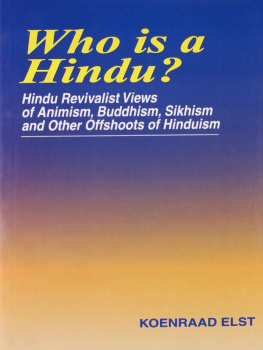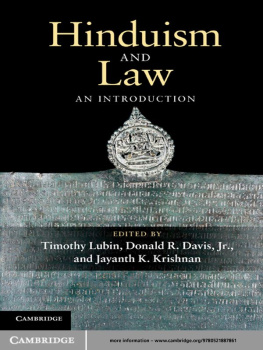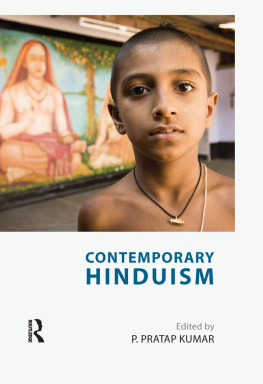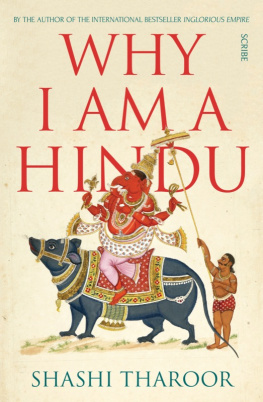
THE HINDU DIASPORA
Hindus and Hinduism outside India represent a divergent diaspora. Among the estimated nine million Hindus scattered across the world, sets of beliefs, practices, identities and social formations have developed rather differently from each other as well as from those found in the subcontinent. Throughout the diaspora, Hindus and Hinduism have travelled along distinct historical trajectories significantly conditioned by a wide range of local factors.
In this theoretically innovative analysis, Steven Vertovec identifies key patterns and processes of change that have affected Hindu beliefs, practices and identities in diaspora. He examines the construction of the category 'Hinduism' in both India and abroad, while developments in two contrasting contexts - Trinidad and Britain - are given detailed historical and ethnographic attention. The notion of 'diaspora' itself is also critically discussed.
Providing a rich and fascinating view of the Hindu diaspora in the past, present and possible futures, this book will be of value not only to students of Hinduism and South Asian society but to those interested in the study of diasporas and transnationalism, religion, ethnicity and multicultural societies.
Steven Vertovec is Research Reader in Social Anthropology at the University of Oxford and Director of the Economic and Social Research Council's Research Programme on Transnational Communities.
GLOBAL DIASPORAS
Series Editor: Robin Cohen
The assumption that minorities and migrants will demonstrate an exclusive loyalty to the nation-state is now questionable. Scholars of nationalism, international migration and ethnic relations need new conceptual maps and fresh case studies to understand the growth of complex transnational identities. The old idea of 'diaspora' may provide this framework. Though often conceived in terms of a catastrophic dispersion, widening the notion of diaspora to include trade, imperial labour and cultural diasporas can provide a more nuanced understanding of the often positive relationships between migrants' homelands and their places of work and settlement.
This book forms part of an ambitious and interlinked series of volumes trying to capture the new relationships between home and abroad. Historians, political scientists, sociologists and anthropologists from a number of countries have collaborated on this forward-looking project. The series includes two books which provide the defining, comparative and synoptic aspects of diasporas. Further titles focus on particular communities, both traditionally recognized diasporas and those newer claimants who define their collective experiences and aspirations in terms of diasporic identity.
This series is associated with the Transnational Communities Programme at the University of Oxford funded by the UK's Economic and Social Research Council.
Already published:
GLOBAL DIASPORAS
An introduction
Robin Cohen
NEW DIASPORAS
Nicholas Van Hear
THE SIKH DIASPORA
Darshan Singh Tatla
ITALY'S MANY DIASPORAS
Donna R. Gabaccia
The
Hindu Diaspora
Comparative patterns
Steven Vertovec
First published 2000
by Routledge
2 Park Square, Milton Park, Abingdon, Oxon, OX14 4RN
Simultaneously published in the USA and Canada
by Routledge
270 Madison Ave, New York NY 10016
Routledge is an imprint of the Taylor & Francis Group
Transferred to Digital Printing 2006
2000 Steven Vertovec
Typeset in Sabon by
Keystroke, Jacaranda Lodge, Wolverhampton
All rights reserved. No part of this book may be reprinted or reproduced or utilized in any form or by any electronic, mechanical, or other means, now known or hereafter invented, including photocopying and recording, or in any information storage or retrieval system, without permission in writing from the publishers.
British Library Cataloguing in Publication Data
A catalogue record for this book is available from the British Library
Library of Congress Cataloging in Publication Data
Vertovec, Steven.
The Hindu diaspora: comparative patterns / Steven Vertovec.
p. cm. (Global disporas)
Includes bibliographical references and index.
1. Hindu diaspora. 2. HindusTrinidad. 3. HindusWest Indies.
I. Global diasporas (London, England)
BL1151.3 V47 2000
294.5'09-dc21 00-032305
ISBN 0-415-23892-7 (hbk)
ISBN 0-415-23893-5 (pbk)
Publisher's Note
The publisher has gone to great lengths to ensure the quality of this reprint but points out that some imperfections in the original may be apparent
FOR ASTRID, LIA AND NIKO
Contents
'Official' and 'popular' Hinduism: historical
and contemporary trends in Surinam,
Trinidad and Guyana |
Religion and ethnic ideology: the Hindu youth
movement in Trinidad |
Reproduction and representation: the growth
of Hinduism in Britain |
Category and quandary: Indo-Caribbean Hindus
in Britain |
Community and congregation: Hindu temples
in London |
First and foremost I express my sincere thanks to the numerous people in Trinidad, Great Britain, the United States, Canada and India who have kindly acted as my informants over some fifteen years. The work draws fundamentally from them - indeed without them there would of course be no book.
Academically I have benefited from the support and feedback of Robin Cohen (as Series Editor as well as a friend and colleague whose opinions and insights I value), Bhikhu Parekh, and Routledge's anonymous referees. David Gellner and Alisdair Rogers have provided invaluable criticism of the text, and I am especially grateful to them for their time and input. Mari Shullaw at Routledge has been an excellent and highly supportive Editor, while Anna Winton's wide-ranging help in Oxford has been of considerable assistance throughout the preparation of the book.
Finally, but certainly not least, I am grateful to my family for putting up with me while I spent time and energy on this project.
Most chapters in this book are refashioned versions or previously published articles: from Vertovec (1999).
Hinduism is an ever-malleable thing. Indeed, to paraphrase Richard Burghart (1987a), the process of reforming beliefs and practices in light of shifting historical contexts is as old as Hinduism itself. What is much newer is that outside of India, over the past one hundred and fifty years or so (almost the wink of an eye relative to Hinduism's history over thousands of years), the forms and meanings of Hinduism have continued to change in ways that are curiously both distinct from, and continuous with, the still evolving forms and meanings in India itself.
Hinduism outside India represents a divergent diaspora, not simply in that beliefs, practices and social formations develop differently from - indeed, may emerge to be quite unlike - those in the subcontinent. Hindu socio-religious phenomena and the identities of Hindu people from place to place outside India are often highly unlike each other, having travelled along diverse historical trajectories conditioned by a wide range of locally contextual factors.







